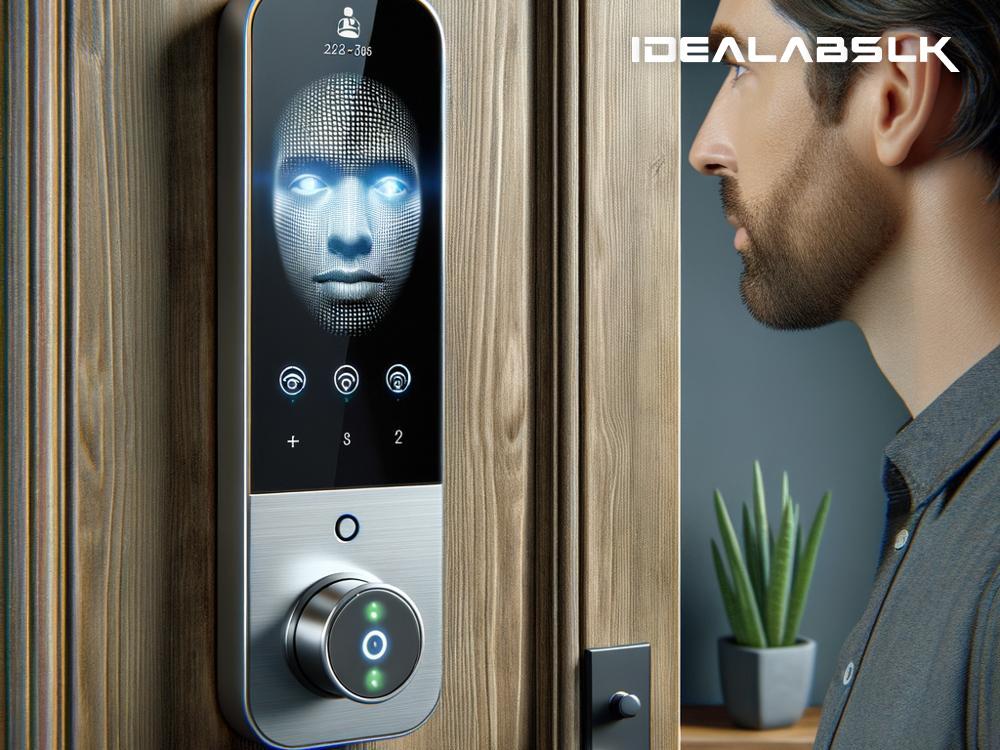How AI is Making Smart Locks Even Smarter and Safer
In an era where security is paramount, particularly at the threshold of our homes, the advent of smart locks has been a game-changer. But, what if these smart locks could be made even smarter and safer with the help of Artificial Intelligence (AI)? Yes, you heard it right. AI is revolutionizing how smart locks operate, providing an added layer of security and privacy. Here’s how AI is turning the key in the lock, quite literally!
Understanding Smart Locks:
Before we delve deeper, let's quickly understand what smart locks are. They are electronic locks that allow you to lock and unlock your door using your smartphone, a special key fob, or biometrics instead of traditional keys. They connect to your home Wi-Fi network, enabling you to control them from anywhere, receive alerts, and even track who comes and goes.
The Role of AI in Enhancing Privacy and Security:
1. Facial Recognition:
One of the most significant AI advancements in smart locks is facial recognition technology. Unlike the traditional method where you need a physical key or a PIN, an AI-powered smart lock can scan and recognize your face to grant access. This means that even if someone knows your PIN or gets hold of your phone, they still can't unlock your door without your physical presence. Moreover, this feature ensures privacy by storing data locally rather than on the cloud, reducing the risk of hacking.
2. Behavior Analysis:
AI can learn and analyze your behavior and routine, such as the time you usually come home. If an attempt is made to unlock the door outside of your normal pattern, the system can alert you immediately. This proactive approach can deter potential intruders by making unauthorized access incredibly difficult.
3. Voice Recognition:
Just like facial recognition, voice recognition adds another layer of security. AI algorithms can distinguish between voices with remarkable accuracy, ensuring that only recognized voices can unlock the door. Voice recognition can also be locally processed, ensuring that your voice patterns aren't stored or shared online, maintaining privacy.
4. Intrusion Detection:
AI can also power smart locks to detect forceful entry attempts. By analyzing data from sensors, AI can understand the difference between a door being opened with a key, a code, or being forced open. In the event of an attempted break-in, the system can initiate a lockdown and alert the homeowner or the authorities, all in real time.
5. Secure Authentication Systems:
AI enhances security by introducing dynamic authentication methods. For instance, it could require secondary verification (like a fingerprint or a code sent to your phone) in suspicious scenarios. This multi-factor authentication makes it significantly harder for unauthorized persons to gain access.
User Privacy:
While enhancing security, AI-powered smart locks also prioritize user privacy. Sophisticated encryption methods ensure that personal data, such as facial recognition data, voiceprints, and entry and exit logs, are securely stored. Additionally, most AI-enabled systems are designed to process and store this sensitive information locally on the device, rather than transmitting it over the internet, greatly reducing the risk of data breaches.
The Future is Now:
The integration of AI in smart locks is not a distant future concept; it's happening now. With each advancement, we're seeing an increase in security measures that protect our homes in ways we could barely imagine a decade ago. However, like any technology, it's crucial to keep it updated and secure from potential vulnerabilities.
Conclusion:
AI is undoubtedly making our smart locks smarter, providing unparalleled security and privacy. By leveraging facial recognition, behavior analysis, voice recognition, and sophisticated encryption, AI ensures that our homes are safe while respecting our privacy. As we continue to embrace smart home technology, the integration of AI in our security systems promises a future where our homes are not just connected but also intelligently protected.
So, whether you’re considering upgrading your traditional lock or already have a smart lock in place, looking into AI-powered options might just be the key to ensuring your home’s security and your peace of mind.

